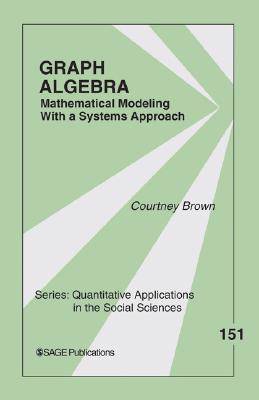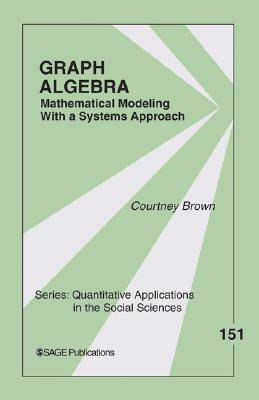
- Afhalen na 1 uur in een winkel met voorraad
- Gratis thuislevering in België vanaf € 30
- Ruim aanbod met 7 miljoen producten
- Afhalen na 1 uur in een winkel met voorraad
- Gratis thuislevering in België vanaf € 30
- Ruim aanbod met 7 miljoen producten
Omschrijving
"Brown is well known for research on mathematical modeling in the social sciences. His book introduces the graph algebra approach to modeling systems in the social sciences."
--CHOICE
Graph Algebra: Mathematical Modeling with a Systems Approach introduces a new modeling tool to students and researchers in the social sciences. Derived from engineering literature that uses similar techniques to map electronic circuits and physical systems, graph algebra utilizes a systems approach to modeling that offers social scientists a variety of tools that are both sophisticated and easily applied.
Key Features:
- Designed for readers in the social sciences with minimal mathematical training: In this volume, the author assists readers in developing their own difference and differential equation model specifications
- Incorporates Social Theory: This book describes an easily applied language of mathematical modeling that uses boxes and arrows to develop very sophisticated algebraic statements of social and political phenomena. Graph algebra can be used to algebraically "flesh-out" even the most complicated and sophisticated of theories.
- Contains social science examples of graph algebra models: Social science readers can see many examples of how graph algebra can be used to model theories from a wide variety of substantive areas and disciplines. The book also describes how to estimate such models, and two examples are fully worked out.
- Explains linear and nonlinear model specifications using graph algebra from a social science perspective: Readers can move beyond simple linear regression models by using graph algebra.
This text is ideal for use in graduate courses such as Statistical Modeling, Quantitative Methods, and Applied Mathematics.
Learn more about "The Little Green Book" - QASS Series! Click Here
Specificaties
Betrokkenen
- Auteur(s):
- Uitgeverij:
Inhoud
- Aantal bladzijden:
- 104
- Taal:
- Engels
- Reeks:
- Reeksnummer:
- nr. 151
Eigenschappen
- Productcode (EAN):
- 9781412941099
- Verschijningsdatum:
- 3/07/2007
- Uitvoering:
- Paperback
- Formaat:
- Trade paperback (VS)
- Afmetingen:
- 162 mm x 216 mm
- Gewicht:
- 127 g

Alleen bij Standaard Boekhandel
Beoordelingen
We publiceren alleen reviews die voldoen aan de voorwaarden voor reviews. Bekijk onze voorwaarden voor reviews.











